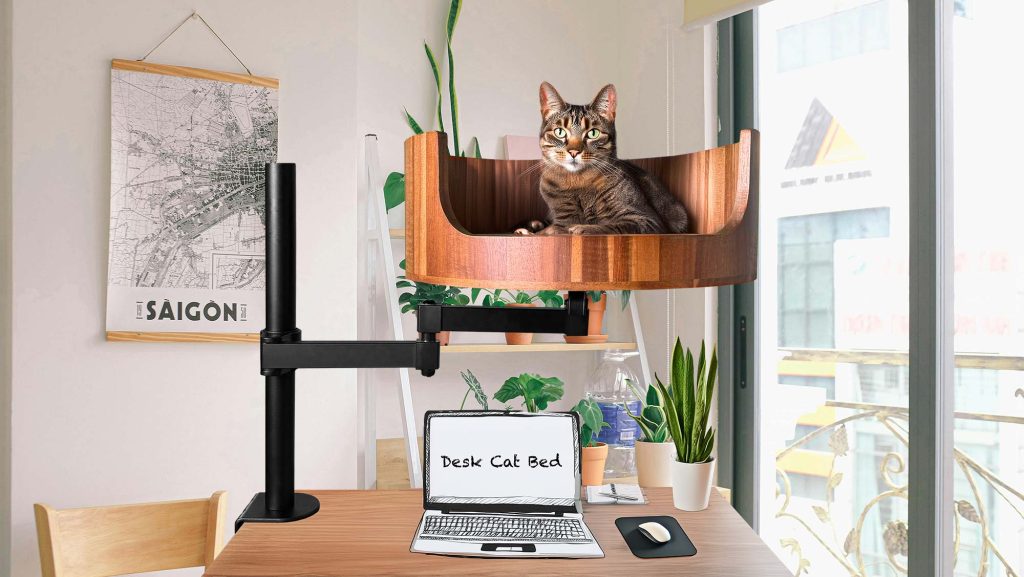Do you often find yourself waking up to the sharp sting of your cat biting your feet in the middle of the night? You’re not alone. This common feline behavior can be a puzzling and frustrating experience for many cat owners. In this article, we will delve into the reasons behind why cats exhibit this biting behavior and explore the various factors that may contribute to it.
From playful interactions to territorial instincts, cats have a wide range of motivations for why they may choose to nibble on your toes. By understanding their natural behaviors and communication cues, we can better navigate our feline companions’ actions and prevent potential misunderstandings. Join us as we unravel the mysteries behind why cats bite your feet and gain insights into how to build a stronger bond with your furry friend.
1. Cats may bite your feet out of a natural instinct to hunt and play, resembling behaviors they would exhibit in the wild.
2. Foot-biting can be a sign of boredom or lack of stimulation, prompting cat owners to provide more interactive toys and playtime.
3. Understanding a cat’s body language and signals can help prevent foot-biting incidents, as cats may use this behavior to communicate their needs.
4. Consistent training and positive reinforcement can help curb foot-biting behavior and redirect a cat’s energy towards more appropriate outlets.
5. Building a strong bond with your cat through regular interaction and affection can reduce instances of foot-biting and strengthen the human-feline relationship.
## Understanding Feline Behavior
Cats are known for their independent and sometimes unpredictable nature. To understand why they bite your feet, it’s essential to delve into their basic behaviors and instincts. Cats are natural hunters and predators, and their behavior is often driven by their prey drive. By understanding their instincts, we can better comprehend why cats exhibit certain behaviors like biting.
## Playfulness and Stimulation
One common reason why cats may bite your feet is out of playfulness and the need for stimulation. Cats are curious creatures that enjoy engaging in interactive games and activities. By biting at your feet, they may be seeking attention or looking for a way to play. Providing appropriate toys and playtime can help redirect this behavior and satisfy their need for mental and physical stimulation.
## Communication and Establishing Boundaries
Cats use various forms of communication to interact with their owners and establish boundaries. Biting can be a way for cats to communicate their emotions or assert dominance. Understanding your cat’s body language and vocal cues can help decipher their intentions when they bite your feet. It’s essential to set clear boundaries and communicate effectively with your cat to prevent unwanted biting behavior.
## Medical and Health Issues
In some cases, biting behavior in cats can be a sign of underlying medical or health issues. Cats may bite at their feet if they are experiencing pain, discomfort, or irritation. It’s crucial to monitor your cat’s behavior and seek veterinary attention if the biting becomes excessive or out of character. Addressing any potential health concerns can help alleviate the biting behavior and improve your cat’s overall well-being.
## Training and Behavior Modification
Training and behavior modification techniques can be effective in addressing biting behavior in cats. Positive reinforcement, redirection, and consistency are key components of training your cat to refrain from biting. By rewarding good behavior and providing appropriate outlets for play and stimulation, you can help curb biting tendencies in your feline companion. Working with a professional animal behaviorist can also provide additional support and guidance in modifying your cat’s behavior.
Frequently Asked Questions
Why do cats bite my feet?
Cats may bite your feet as a form of play or to get your attention. They may also see your moving feet as prey and instinctually want to pounce on them. It could also be a sign of boredom, lack of stimulation, or a desire for more interaction with you.
How can the Desk Cat Nest help with this behavior?
The Desk Cat Nest provides a comfortable and secure space for your cat to relax and observe their surroundings while you work. This can help alleviate boredom and provide your cat with a designated area to rest and play, reducing the likelihood of them biting your feet for attention.
Will the Desk Cat Nest completely stop my cat from biting my feet?
While the Desk Cat Nest can help redirect your cat’s attention and provide them with a suitable space to play, it may not completely eliminate the behavior. It’s important to also engage in regular interactive playtime with your cat and provide them with other forms of enrichment to address the root cause of their biting.
How do I introduce my cat to the Desk Cat Nest?
It’s best to place the Desk Cat Nest in a quiet and accessible area where your cat likes to spend time. You can encourage them to explore the nest by placing treats or toys inside and using positive reinforcement when they use it. Patience and consistency are key to helping your cat adjust to the new furniture piece.
In conclusion, the Desk Cat Bed is a valuable choice for cat owners looking to address the issue of cats biting their feet. By providing a designated cozy and comfortable space for your feline friend to relax and play, this product helps to redirect their behavior away from biting and towards a more appropriate outlet. With its soft materials and elevated design, the Desk Cat Bed offers numerous benefits including enhanced comfort, reduced stress, and a healthier bond between you and your cat. Investing in a Desk Cat Bed can ultimately lead to a happier and more harmonious relationship with your pet.


